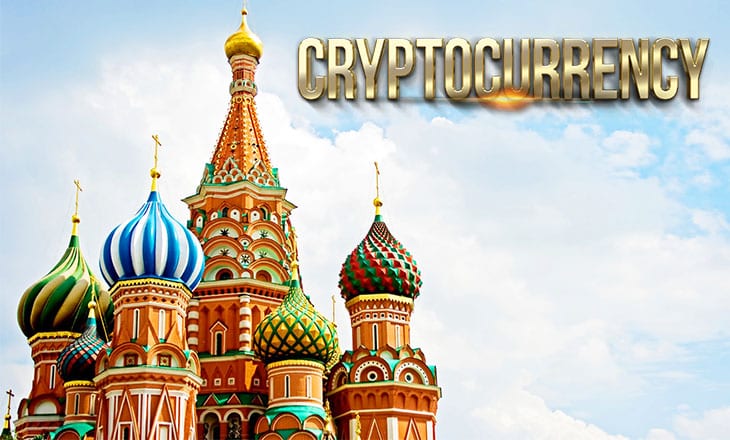As Russian government officials continue to debate the efficacy of cryptocurrencies and blockchain technology, industry observers are curious as to why there has not been a major push to lead in this arena. Observers have noted that Russia is definitely a “global powerhouse for development talent and business acumen in the blockchain space”, but, unlike China and India, which have instituted bans on all things crypto, Russia has toyed with the topic for a number of years, almost like a tag-team match of two contending forces, one favoring the status-quo, while the other preaches the benefits of leading.
Per one report:
Recently, there has been a lot of talk about the Russian government’s attitude toward cryptocurrency and whether they will recognize it as currency, legalize it, and create clear regulations for cryptocurrency companies. All of these questions have major impacts on the future of crypto in Russia. We don’t yet have definitive answers on how Russia will legally define cryptocurrency, since the laws are still being written and revised.
One fact is certain – the blockchain eco-sphere depends heavily on Russian software development talent, benefiting from a widespread Russian diaspora across the globe. The current estimate for ethnic Russians living outside of the Russian Federation is placed somewhere between 20 and 30 million people, depending on the definition of ethnicity applied, but one can accept that 30 million native speakers of Russian live in other countries.
The old Soviet Union hierarchy decidedly placed a heavy emphasis on technological advancements, as a way to compete in the world and thereby fostered technical education as a high priority for its citizens. The planting of these “seeds” has resulted in a broad-based and “strong pool of computer, engineering, and cryptography talent”. The numbers speak for themselves in Crypto-Land. Of the fifty major crypto development projects, ranked by funding, Russian entrepreneurs founded one-fifth of these. If you review last year’s batch of Initial Coin Offerings (ICOs), Moscow was the number one city for producing CEOs for these efforts. St. Petersburg came in sixth.
With this abundance of talent and forward momentum, what is standing in the way of Russia becoming what one could call the “King of Blockchain”? The reaction of various government officials has been hot and cold for several years. Many observers sense that both history and culture have been so overly centralized that a decentralized approach to anything represents a degree of change that could make many people very uncomfortable, except for software developers that are keen on the notion.
Bank in 2017, a Russian intelligence officer actually said: “The Internet belongs to the Americans – but blockchain will belong to us.” Vladimir Putin subsequently supported and welcomed crytocurrencies, putting in motion an effort to develop the necessary legislative framework and regulatory authorities to support future development. Putin, however, soon reversed himself, calling for a crackdown on cryptocurrencies, only to warm up again to the idea the following year when it was thought that a “CryptoRuble” might offer a way to get around international sanctions. That idea has lost steam, too.
With greater understanding, Putin seems to be supportive again, to a degree. He has demanded that the effort to create a regulatory framework be completed. First drafts have not been satisfactory, and a deadline for delivery in July is quickly approaching. The current state of government endorsement is, in a word, “cold”, as these comments and quotes evidence:
- Prime Minister Dmitry Medvedev: He has reportedly claimed that the popularity of cryptocurrencies “has decreased”, which is one reason why the regulatory issues are “not that relevant” anymore;
- Sergey Shvetsov, first deputy governor of the CBR: “If we’re talking about cryptocurrencies and forex-clubs, it’s not a financial market, it’s just a game. There are people who like to play, they invest in it [cryptocurrency], but the ripples will affect others. Which is why we have quite a strict policy here.”
- Anatoly Aksakov, the chairman of the State Duma Committee on the Financial Market: “We believe that cryptocurrencies created on open blockchains such as bitcoins, ethers, and others are illegitimate tools.”
At some point soon, however, a bill will pass to regulate the industry, the next step in the process. Proposals are still being debated, but one observer’s take is that the new rules will be very restrictive:
Unregistered crypto operations will likely face criminal liability under the new law. Participating in crypto activities will require mandatory registration with the state. Mandatory registration takes away from the anonymous nature of blockchain and makes it easier for the state to track and control crypto markets.
Government officials may have turned negative to all things crypto, but business interests within Russia remain very high on blockchain technology. A recent 3-day conference in June in St. Petersburg featured a panel entitled: “Blockchain technology and cryptocurrencies: Past, Present, Future”. Speakers included Vitalik Buterin, a co-founder of Ethereum, Chris Lee, a financial director at Huobi, and Ted Lin, chief growth officer at Binance. Enthusiasm within the business community related to blockchain efforts has a strong foundation in Russia.
Despite the government’s coolness toward digital assets, it has warmed to blockchain technology. Partnerships and alliances are forming daily, as activities turn bullish on the blockchain front. One interesting arrangement is a three-party arrangement between Nornickel, the world’s leading producer of nickel and palladium, the Moscow Institute of Physics and Technology, and IBM.
In a joint statement, the group announced the formation of an education center devoted to blockchain related programs:
Students and postgraduates will learn how to apply blockchain technologies, and will gain knowledge about cryptocurrency exchanges, stablecoins, tokenization platforms and similar services.
It will be interesting to witness how the new regulatory framework rolls out and if it is supportive of blockchain technology, while dismissive of any token related components. The potential is definitely there for Russia to become the dominant force in blockchain developments, if only the government were to provide its support going forward.
